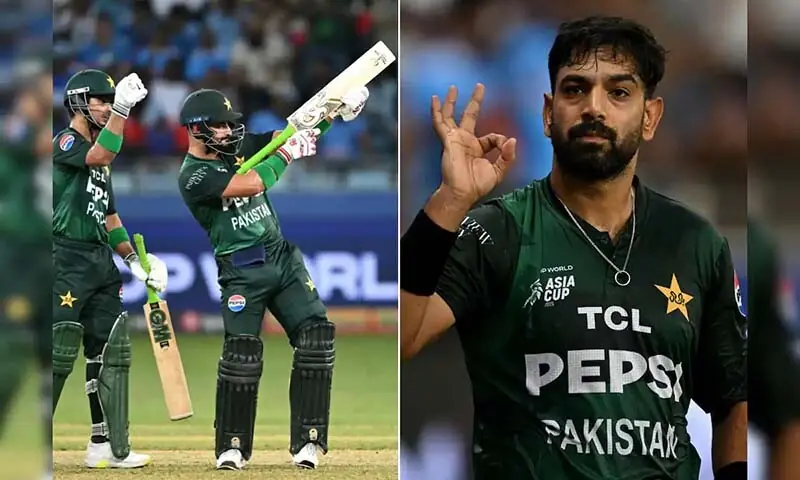Ramzan Sheikh
The 2025 Asia Cup in Dubai will be remembered not for the brilliance of batters or bowlers, but for the disturbing spectacle of nationalism and hostility that turned cricket into a theatre of conflict. Rarely has a multilateral sports tournament been so soaked in political undertones and militaristic symbolism. Unlike Russia’s exclusion from the 2024 Olympics or FIFA’s quiet decision-making in 2022, this Asia Cup was no silent affair—it was loud, jingoistic, and deeply unsettling.
From the very start, the India–Pakistan encounters became stages for political theatre rather than sporting contests. Hand gestures mimicking fighter jets, refusals to shake hands, and heated exchanges with officials became as common as fours and sixes. Cricket, once celebrated as a gentleman’s game, was reduced to a spectacle of militarised pride. The cultural baggage of wars, historical enmities, and unresolved conflicts seeped into the 22-yard pitch, making every delivery a symbolic weapon rather than a sporting act.
Follow Republic Policy on YouTube
History of a Rivalry Turned into Propaganda India and Pakistan have fought wars and maintained uneasy peace for decades. Since the 2008 Mumbai attacks, cricketing ties have been minimal—just a single bilateral series in 2012. Despite this, whenever the two sides met in global tournaments, players tried to maintain a degree of neutrality. That fragile balance collapsed in 2025. This year’s Asia Cup showed that cricket is no longer just a sport but a carefully choreographed performance of nationalism designed for global consumption and financial profit.
Follow Republic Policy on Twitter
Theatrics Beyond the Boundary Indian captain Suryakumar Yadav used post-match conferences to dedicate victories to the Indian armed forces and victims of terror attacks. Despite being fined, he repeated the same rhetoric in the final, amplifying nationalist sentiment. On the other side, Pakistan’s Haris Rauf, after a poor bowling display, mimicked the crashing of Indian jets—a gesture referencing past military clashes. These antics, circulated endlessly on social media, overshadowed the actual cricket and demonstrated how theatrics often matter more than performance.
Follow Republic Policy on Facebook
Trophy Without Ceremony The culmination of the tournament offered another bizarre spectacle. The Indian team, after winning, refused to accept the trophy from Mohsin Naqvi, Pakistan’s federal minister and Asian Cricket Council president. In an unprecedented move, the ACC withdrew the silverware altogether. A winning team celebrating without a trophy illustrated the sheer absurdity of how politics had overtaken sport.
Follow Republic Policy on TikTok
Politicians Fan the Flames Indian Prime Minister Narendra Modi compared India’s victory to a military operation, labelling it “Operation Sindoor.” This framing trivialised real conflicts that had cost lives and livelihoods. Journalists and critics condemned the rhetoric, noting how dangerous it is to equate cricket with war. Meanwhile, Pakistan’s politicians and cricket officials capitalised on the theatrics, framing their team’s provocations as symbolic defiance.
Follow Republic Policy on Instagram
Business of Hypernationalism Behind the scenes, the real driver was money. India’s cricket board has consistently refused bilateral matches citing security concerns, but when multilateral tournaments offer billions in sponsorship, the fixtures are embraced. Fans who initially boycotted turned into passionate spectators, creating an environment where nationalism is monetised. Each provocation on the field translated into higher viewership and greater profits for broadcasters and sponsors.
Follow Republic Policy on WhatsApp
Pakistan’s Equal Share of Guilt Pakistan’s team and board were equally complicit. From Haris Rauf’s jet-crash mimicry to their combative responses, Pakistan too indulged in theatrics rather than focusing on cricket. Such actions only reinforce the idea that sportsmanship has been replaced by nationalism as the primary currency of relevance.
The Tragedy of Cricket’s Militarisation Cricket is supposed to embody sportsmanship, diplomacy, and unity. Instead, the Asia Cup 2025 became a proxy war. Young cricketers watching this spectacle are being taught that jingoism is more rewarding than discipline, that gestures of hatred go further than sixes and wickets. For emerging cricketing nations, this is a disastrous lesson.
A Game Held Hostage Calls for banning India and Pakistan from future tournaments have surfaced. Critics argue that smaller nations like Sri Lanka, Bangladesh, and Afghanistan should not suffer because two giants treat cricket as an extension of geopolitical hostility. Yet banning remains unlikely—India is cricket’s financial hub, while Pakistan remains a crucial attraction. Money dictates survival, leaving cricket hostage to destructive rivalries.
The Final Word The Asia Cup 2025 revealed a sobering reality: cricket’s future is being written not by athletes’ skills but by political theatre. If cricket continues to serve as an arena for nationalistic showdowns, the spirit of the game will be permanently scarred. What unfolded in Dubai was not diplomacy through sport but division disguised as competition. Cricket deserves far better.
















